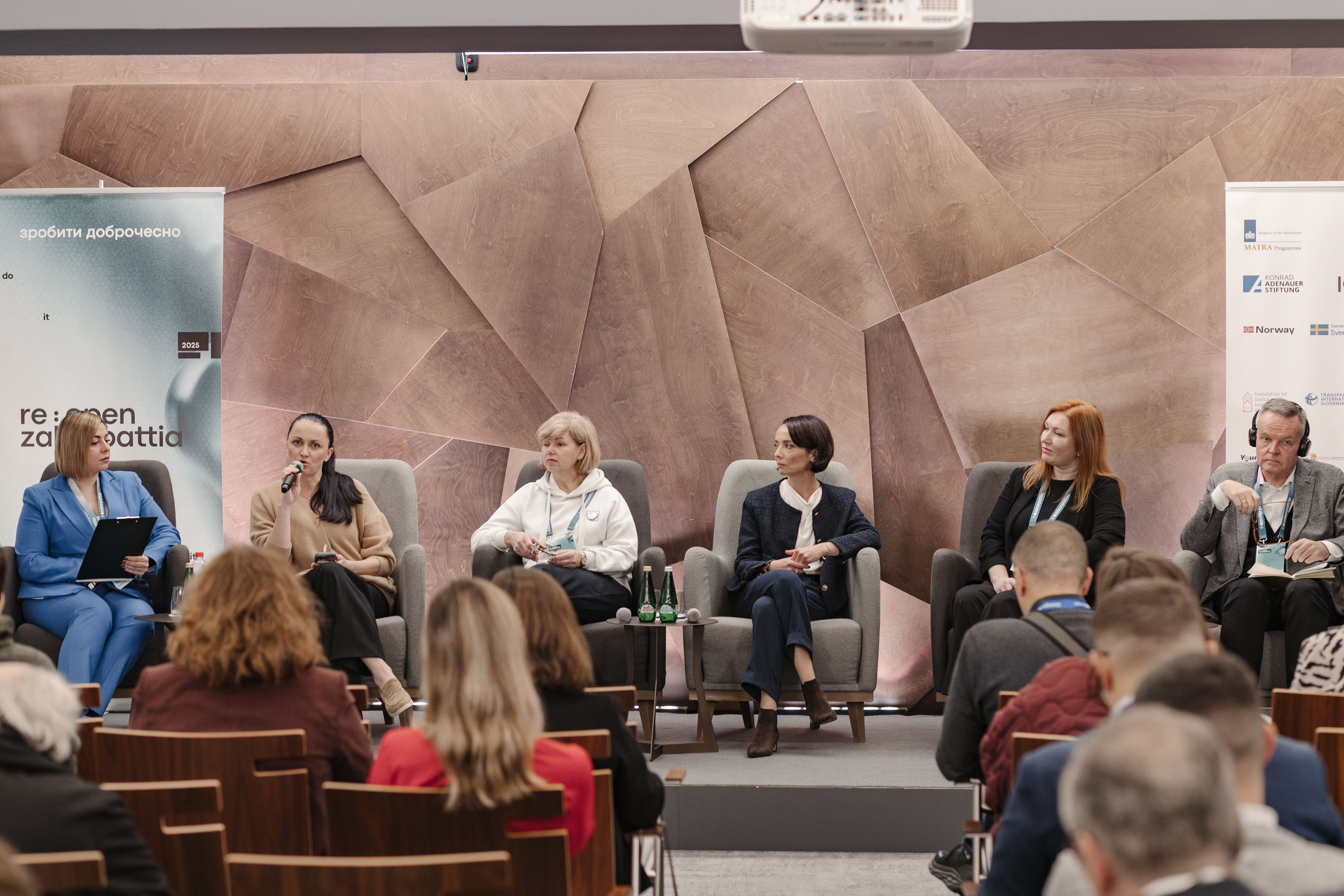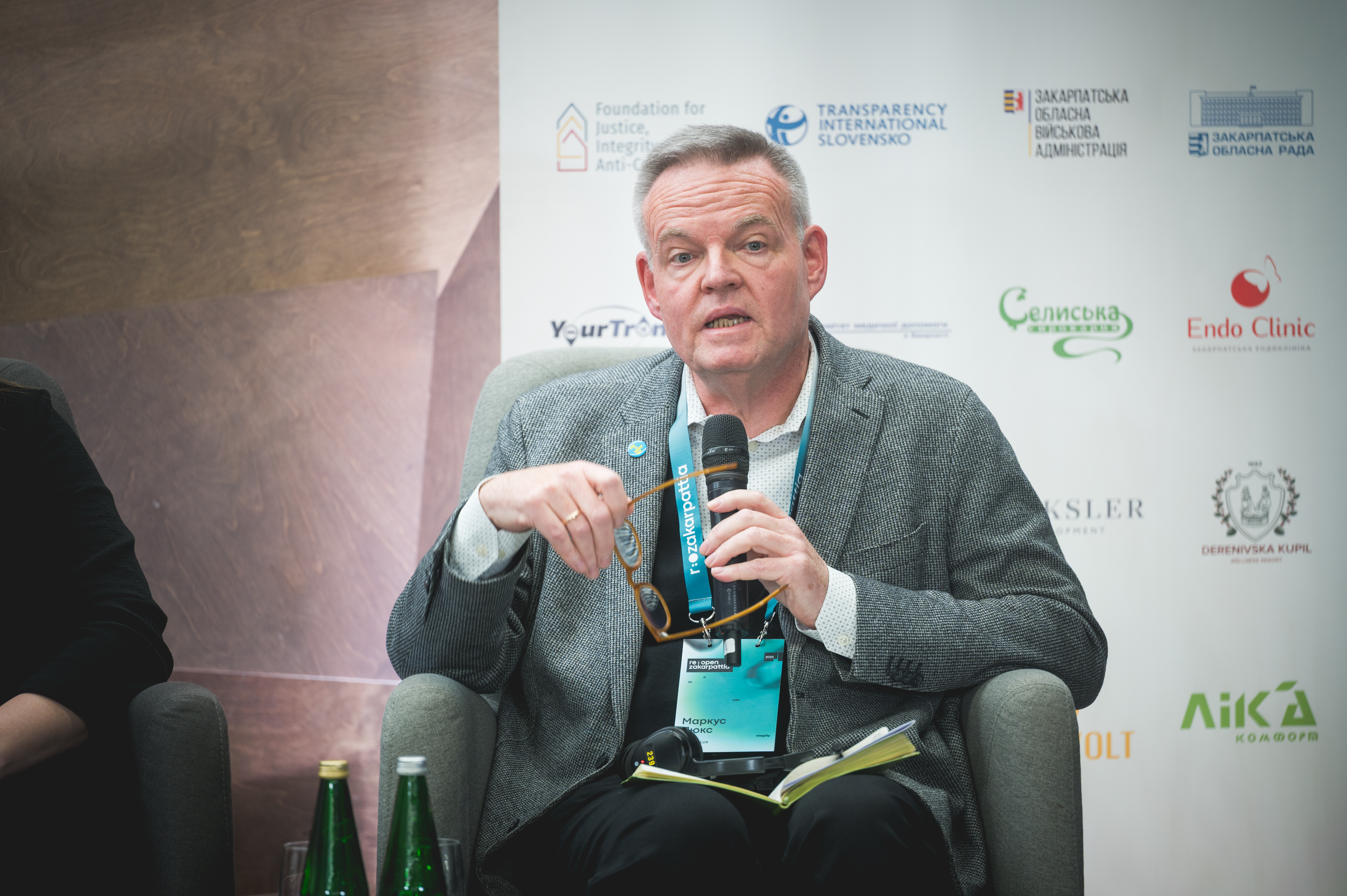
This year’s Re:Open Zakarpattia Forum became an important platform for discussions on Ukraine’s European integration, environmental challenges and sustainable solutions, demography, human capital development, and mental health.
ISAR Ednannia organized a panel discussion on Infrastructure of Care: The Role of Civil Society in Mental Health Recovery featuring Nataliya Kabatsiy, Head of Medical Aid Committee in Zakarpattia, Ella Musaeva, member of the Institute of Psychosomatics and Trauma Therapy, Anna Sokolenko, expert at the Coordination Centre for Mental Health of the Cabinet of Ministers of Ukraine, Valeria Tatarchuk, Executive Director and Founder of the Your Support Charitable Foundation, and Markus Lux, Vice President and Special Unit for Ukraine at Robert Bosch Foundation.
The participants emphasized that it is local initiatives that respond first to people’s pain, and that civil society organizations must become the driving force behind new approaches to mental health. They also shared their experiences of working with communities.

In particular, Valeria Tatarchuk shared the story of creating the Family Center for Mental Wellbeing ‘Your Support’, which has become a vivid example of such work: since March 2022, the center has provided over 11,000 services, most of them to children. “We train specialists, have introduced mandatory supervision, and diversify our funding sources, from business to charity events, to ensure the sustainability of support for people,” she noted.

During the panel discussion, Markus Lux announced the establishment of a Pooled Fund for Mental Health and Psychosocial Support in Ukraine (MHPSS Pooled Fund). The initiative unites the resources of seven international foundations: UBS Optimus Foundation, Fondation de France, Robert Bosch Foundation, King Baudouin Foundation, Porticus Foundation, Temerty Foundation, and PKO Bank Polski Foundation. The fund will be administered by ISAR Ednannia.
The fund will support communities, primarily those near the frontlines, through local civil society organizations. It will provide grants of various sizes, training, mentoring, research, and community-building among professionals working in the field of mental health. Its main goal is to help CSOs operate in a balanced and sustainable way, building enduring systems of support that are integrated into broader recovery and reform processes.
Follow our updates to learn more about the fund’s activities.
